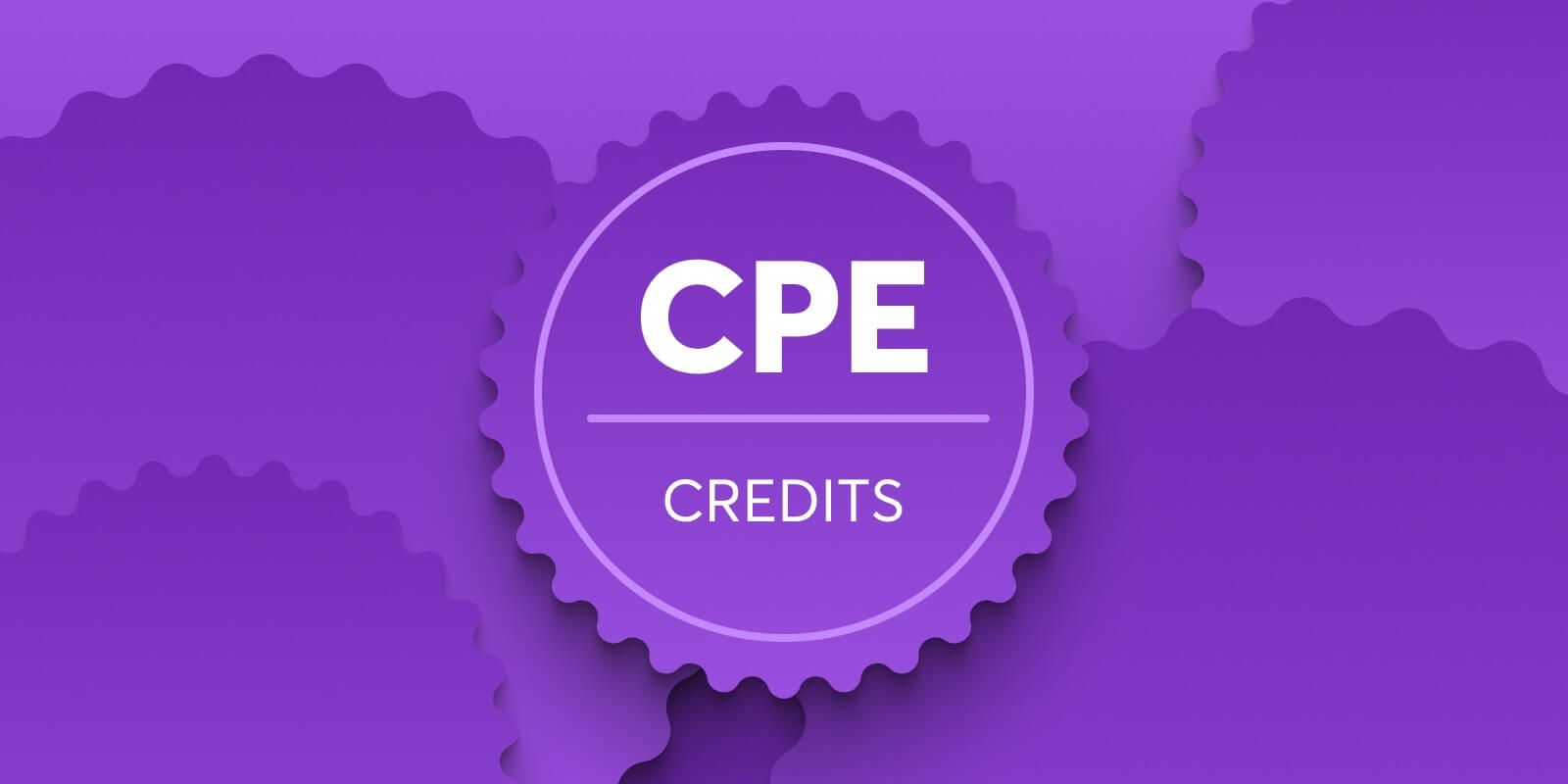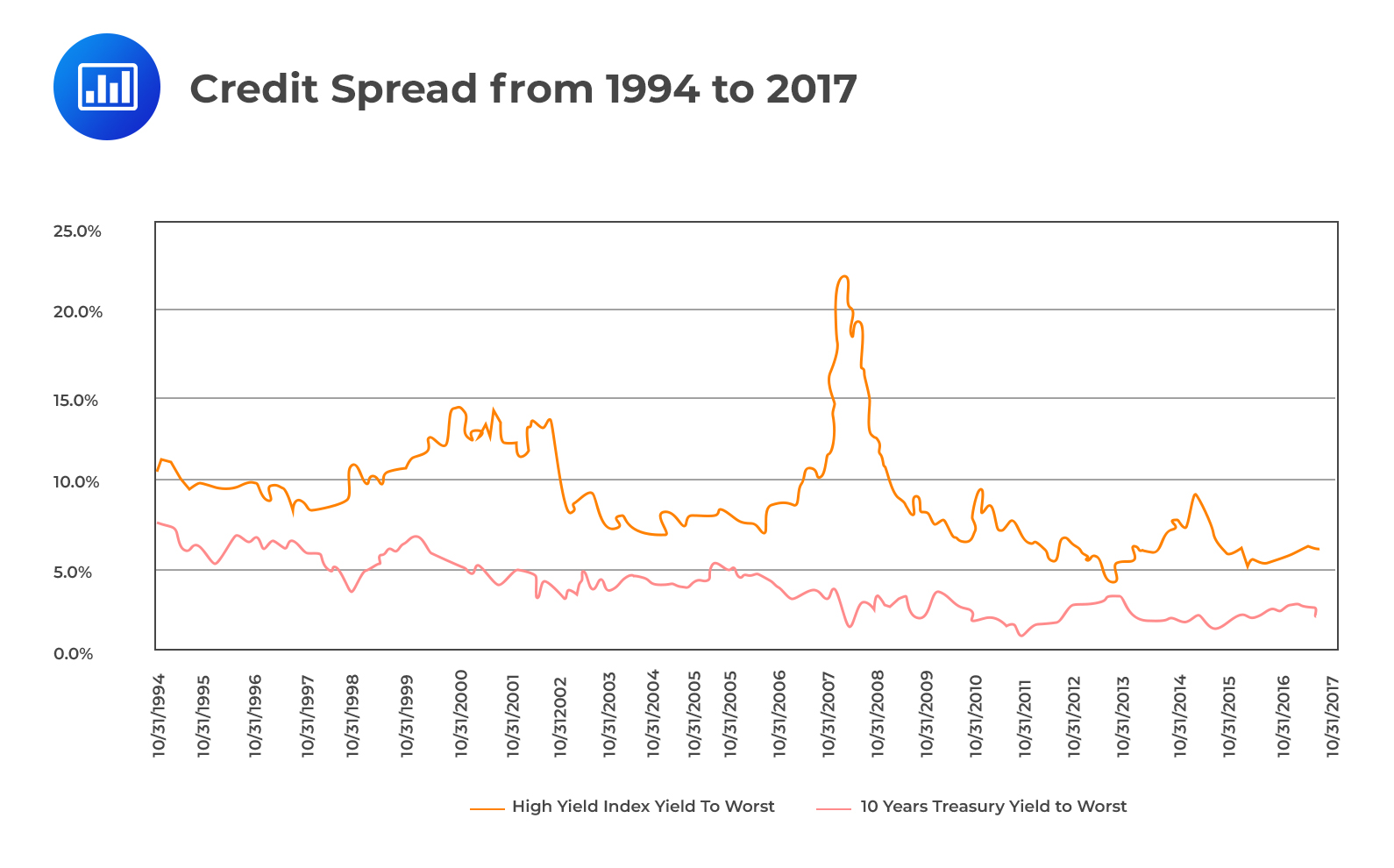

Finance
What Is A CPE Credit
Published: January 13, 2024
Discover what a CPE credit is and how it can benefit your career in finance. Gain valuable knowledge and stay compliant with industry standards.
(Many of the links in this article redirect to a specific reviewed product. Your purchase of these products through affiliate links helps to generate commission for LiveWell, at no extra cost. Learn more)
Table of Contents
Introduction
Welcome to the world of continuing professional education (CPE) credits! If you work in the finance industry or any field that requires ongoing professional development, you may have come across the term “CPE credit” or “CPE hours” before. But what exactly is a CPE credit and why is it important?
CPE credits are a way for professionals to demonstrate their commitment to lifelong learning and staying updated in their field. Whether you’re a certified public accountant (CPA), financial advisor, or any other finance professional, earning CPE credits is essential for maintaining your professional status and staying ahead in the ever-evolving world of finance.
But what exactly does it mean to earn CPE credits? In this article, we’ll explore the definition of CPE credit, its purpose, and how to earn and fulfill CPE credit requirements. We’ll also discuss the different types of CPE credits available and the benefits they bring to finance professionals like yourself.
So, if you’re ready to dive into the world of CPE credits and gain a deeper understanding of their importance, continue reading to discover everything you need to know.
Definition of CPE Credit
CPE credit, short for Continuing Professional Education credit, refers to the educational hours or units that professionals earn to demonstrate their ongoing commitment to enhancing their knowledge and skills in their respective fields. CPE credits are typically required for professionals who are required to maintain a certain level of expertise and stay up-to-date with the latest developments in their industry.
These credits are awarded by professional organizations, educational institutions, or other authorized providers, and they serve as a measure of a professional’s dedication to professional growth and development. CPE credits are intended to ensure that professionals stay informed about industry trends, regulations, and best practices.
The number of CPE credits required varies depending on the profession and regulatory bodies involved. For example, certified public accountants (CPAs) often need to earn a specific number of CPE credits each year to maintain their licensure. Other professionals, such as financial planners, lawyers, and human resource professionals, might also be required to earn CPE credits to maintain their professional credentials.
CPE credits can be earned through various educational activities, including attending seminars, workshops, conferences, webinars, online courses, and completing self-study programs. These activities are designed to provide professionals with valuable insights, updates on industry trends, and practical knowledge to enhance their skills and stay current in their field.
It’s important to note that CPE credits are not equivalent to formal academic credits that can be applied toward a degree program. However, they are essential for professionals to maintain their professional standing and demonstrate their commitment to ongoing learning.
Purpose of CPE Credits
The main purpose of CPE credits is to ensure that professionals stay current and competent in their respective fields. As industries evolve, new regulations are introduced, and best practices change, it is crucial for professionals to continuously update their knowledge and skills to provide the highest level of service to their clients or organizations.
CPE credits serve as a mechanism to encourage professionals to engage in continuous learning and professional development. They provide a structured framework for professionals to pursue ongoing education and stay abreast of the latest industry trends and advancements.
Another important purpose of CPE credits is to maintain professional standards and uphold ethical practices. By requiring professionals to earn a certain number of CPE credits, regulatory bodies and professional organizations can ensure that their members are committed to maintaining a high level of expertise and ethics. This helps to protect the public and instill confidence in the profession.
CPE credits also provide professionals with opportunities to expand their networks and engage with peers and industry experts. Attending CPE events, such as conferences and seminars, allows professionals to connect with others in their field, share knowledge, and gain different perspectives.
Furthermore, earning CPE credits can contribute to career advancement and professional growth. Many employers value employees who actively pursue ongoing learning and development. By earning CPE credits, professionals can demonstrate their dedication to their craft and enhance their credibility and marketability in the job market.
Lastly, CPE credits can serve as a source of motivation for professionals to strive for excellence. The pursuit of CPE credits encourages individuals to continuously challenge themselves, explore new areas of interest, and push beyond their comfort zones. This drive for self-improvement ultimately leads to higher-quality work and better service for clients or organizations.
In summary, the purpose of CPE credits is multifaceted. They promote ongoing learning, maintain professional standards, foster networking opportunities, contribute to career advancement, and inspire professionals to always aspire to higher levels of knowledge and skill.
Importance of CPE Credits
CPE credits play a crucial role in the professional development of finance professionals and other industry practitioners. Here are several reasons why CPE credits are important:
- Staying Updated: The finance industry is dynamic, with constantly evolving regulations, technologies, and best practices. Earning CPE credits ensures professionals stay current with these changes, enabling them to provide the most accurate and relevant advice to their clients or organizations.
- Maintaining Professional Standing: Many regulatory bodies and professional organizations require their members to earn a specific number of CPE credits to maintain their professional credentials. By fulfilling these requirements, professionals can demonstrate their commitment to maintaining professional standards and ethics.
- Enhancing Skills and Knowledge: CPE activities provide opportunities for professionals to enhance their technical skills, broaden their knowledge base, and acquire new expertise. This allows them to increase their value to employers, clients, and stakeholders.
- Improving Problem-Solving Abilities: Engaging in CPE activities, such as case studies, workshops, or interactive seminars, can improve professionals’ critical thinking and problem-solving abilities. These skills are vital in navigating complex financial scenarios and making informed decisions.
- Networking and Collaboration: CPE events offer professionals the chance to connect with like-minded individuals, exchange ideas, and build valuable professional relationships. Networking can lead to collaboration opportunities and the sharing of insights and best practices.
- Meeting Regulatory Requirements: Many finance professions are subject to regulatory oversight, with mandatory CPE credit requirements. Failing to meet these requirements could result in penalties, loss of licensure, or other professional sanctions.
- Boosting Career Advancement: Employers often value candidates who demonstrate a commitment to ongoing professional development. Earning CPE credits showcases dedication and a proactive approach to career advancement, increasing opportunities for promotions, salary raises, and new job prospects.
In summary, CPE credits are vital for finance professionals, as they ensure constant growth, professional standing, and the ability to meet industry demands. By actively pursuing CPE opportunities, professionals can enhance their skills, stay updated with industry changes, and position themselves as knowledgeable and competent experts in their field.
How to Earn CPE Credits
Earning CPE credits involves engaging in educational activities that enhance your professional knowledge and skills. Here are several ways to earn CPE credits:
- Attend Seminars and Conferences: Many professional organizations and industry associations host seminars and conferences that offer CPE credits. These events feature expert speakers, panel discussions, and workshops focused on various topics relevant to your field. Attending these events allows you to learn from industry leaders and earn CPE credits simultaneously.
- Participate in Webinars and Online Courses: Online platforms offer a wide range of webinars and courses specifically designed for earning CPE credits. These virtual sessions provide flexibility and convenience, allowing you to learn and earn credits from the comfort of your home or office. Virtual courses often include assessments or quizzes to verify understanding and qualify for CPE credits.
- Engage in Self-Study Programs: Self-study programs involve independent learning through reading articles, books, or research papers relevant to your profession. Some organizations provide materials and resources specifically designed for self-study and award CPE credits upon successful completion.
- Pursue Professional Certifications: Earning professional certifications can often earn you CPE credits. The process of obtaining a certification typically involves completing a designated curriculum and passing an exam. Successful completion of certification programs can contribute significantly to earning CPE credits.
- Teach or Present: Sharing your knowledge and expertise through teaching or presenting at industry events can also earn you CPE credits. Many professional organizations recognize the value of knowledge dissemination and offer credits as an incentive for professionals to become instructors or presenters.
- Write Articles or Publish Research Papers: Publishing articles or research papers in industry publications or reputable journals can qualify for CPE credits. This allows professionals to contribute to their field and earn educational credits simultaneously.
It’s important to note that each regulatory body or professional organization may have specific guidelines regarding CPE credit eligibility and requirements. Be sure to confirm that the activities you are engaging in are recognized and approved by the appropriate accrediting bodies to ensure the credits will count toward your professional development goals.
Keep track of your CPE credits and maintain proper documentation to prove your participation in these activities. This may include certificates of completion, attendance records, or other forms of verification.
By actively seeking out opportunities in these various formats, you can accumulate the required CPE credits to meet your professional obligations and stay up-to-date in your field.
Types of CPE Credits
There are several types of CPE credits available, allowing professionals to choose the learning formats that best suit their needs and preferences. Here are some common types of CPE credits:
- Verifiable Credits: Verifiable CPE credits involve attending educational events or activities that are accredited or approved by recognized professional organizations or regulatory bodies. These credits often require proof of attendance, such as certificates or completion documentation.
- Self-Study Credits: Self-study credits are earned through independent learning activities, such as reading books, articles, or research papers relevant to your field. These activities typically require the successful completion of assessments or quizzes to validate knowledge acquisition and earn the credits.
- Webinar and Online Course Credits: Webinars and online courses offer a convenient way to earn CPE credits remotely. These virtual learning experiences involve participating in live or recorded sessions and often incorporate quizzes or assessments to verify understanding and qualify for credits.
- Conference and Seminar Credits: Attending in-person or virtual conferences and seminars focused on relevant industry topics can earn you CPE credits. These events often feature expert speakers, panel discussions, and interactive sessions that provide valuable insights and networking opportunities.
- Professional Certification Credits: Pursuing professional certifications, such as Certified Public Accountant (CPA), Certified Financial Planner (CFP), or Chartered Financial Analyst (CFA), typically involves completing a specified curriculum and passing rigorous exams. The successful completion of these certifications can contribute to earning CPE credits.
- Teaching and Presenting Credits: Sharing your knowledge and expertise by teaching or presenting at industry events can also earn CPE credits. Many professional organizations recognize the value of knowledge dissemination and offer credits as an incentive for professionals to become instructors or presenters.
- Authoring and Publishing Credits: Writing articles or research papers for industry publications or reputable journals can qualify for CPE credits. Authoring and publishing work allows professionals to contribute to their field and earn educational credits simultaneously.
It’s important to note that the availability and acceptance of these CPE credit types may vary depending on the requirements of the regulatory body or professional organization overseeing your profession. Familiarize yourself with the specific guidelines and criteria to ensure that the credits you earn align with your professional development goals.
By diversifying the types of CPE credits you pursue, you can engage in a range of learning experiences that suit your preferences and expand your knowledge and expertise in various ways.
CPE Credit Requirements
CPE credit requirements vary depending on the profession and the regulatory bodies or professional organizations that oversee them. It is essential for professionals to understand and meet these requirements to maintain their professional standing and credentials. Here are some key factors to consider:
- Time Period: CPE credit requirements are often measured over a specific time period, such as annually or biennially. Professionals may need to earn a certain number of credits within this timeframe to remain compliant.
- Credit Hours: Each regulatory body or organization determines the number of CPE credit hours required. This can range from a few hours to several days’ worth of educational activities. Credits are typically awarded on an hour-for-hour basis, with one credit equaling one hour of educational participation.
- Minimum and Maximum Categories: Some regulatory bodies may have requirements regarding the allocation of CPE credits across specific subject areas. For example, a certain number of credits may be mandated in ethics, accounting, or specialized topics. Ensure you understand any category or subject-specific requirements.
- Accreditation: It is crucial to ensure that the CPE activities you engage in are recognized and accredited by the appropriate regulatory bodies or professional organizations. Not all educational programs or providers may be eligible for CPE credits, so verify the accreditation status before participating.
- Documentation: Keeping accurate records of CPE activities, including certificates of completion and attendance records, is vital. These documents serve as proof that you have met the necessary requirements and can be requested during audits or when renewing professional registrations or licenses.
- Reporting and Renewal: Professionals often need to report their earned CPE credits to the relevant regulatory bodies or professional organizations. Failure to report or renew the required credits within the specified time frame could result in penalties or the loss of professional credentials.
It is essential to review the specific CPE credit requirements set forth by the regulatory bodies or professional organizations within your industry. These requirements are subject to change, so staying informed and up-to-date on any updates or modifications is vital to remaining compliant.
By understanding and fulfilling the CPE credit requirements, professionals can demonstrate their commitment to continuous learning, maintain their professional standing, and meet the expectations set by their industry’s governing bodies.
CPE Credit Providers
There are various organizations and institutions that offer CPE credits to professionals seeking to fulfill their continuing professional education requirements. These CPE credit providers offer a wide range of educational activities and programs that cater to different industries and areas of expertise. Here are some common CPE credit providers:
- Professional Associations and Organizations: Many professional associations, such as the American Institute of Certified Public Accountants (AICPA), Financial Planning Association (FPA), or Society for Human Resource Management (SHRM), offer CPE credits to their members. These associations hold conferences, seminars, webinars, and workshops that provide educational content and award credits to attendees.
- Educational Institutions: Universities, community colleges, and other educational institutions often provide CPE credit courses and programs. These can be in-person or online, allowing professionals to earn credits while expanding their knowledge and skills in a structured academic setting.
- Commercial Training Providers: Numerous companies specialize in delivering training programs tailored to specific industries. These providers offer courses, webinars, and workshops that grant CPE credits upon successful completion.
- Regulatory Bodies: Depending on the profession, regulatory bodies may directly offer CPE programs or partner with accredited providers to ensure professionals have access to approved CPE activities. These bodies often set the standards and guidelines for earning and reporting CPE credits.
- Online Learning Platforms: Online platforms that specialize in professional development courses and webinars, such as Udemy, Coursera, or LinkedIn Learning, may offer CPE credits for completing their programs. These platforms provide convenience and flexibility in earning CPE credits from anywhere in the world.
- Industry Conferences and Events: Many industry conferences and events dedicate sessions and workshops specifically for earning CPE credits. These events bring together experts and thought leaders who share their insights and knowledge through presentations and panel discussions.
- Government Agencies: Some government agencies may offer CPE credit programs relevant to specific professions. These agencies often provide training and educational resources to help professionals maintain compliance with regulatory requirements.
When seeking CPE credit providers, it is crucial to ensure that they are recognized and accredited by the relevant regulatory bodies or professional organizations governing your industry. This ensures that the credits earned will be accepted towards fulfilling your CPE requirements.
Keep in mind that CPE credit providers may have different pricing structures, formats, and subject focus areas. Researching and comparing different providers will allow you to choose the ones that best align with your professional goals, preferred learning styles, and budget.
Remember to maintain proper documentation of your participation and successfully completed CPE activities to provide evidence of completion when required for reporting or renewal purposes.
Benefits of CPE Credits
CPE credits offer numerous benefits to finance professionals and other industry practitioners. Here are some key advantages of earning CPE credits:
- Ongoing Professional Development: Engaging in CPE activities enables professionals to continually develop their skills, knowledge, and expertise. This ensures they stay updated with industry trends, regulations, and best practices, enhancing their ability to provide high-quality service to clients or organizations.
- Maintaining Professional Standards: CPE credits are often required by regulatory bodies and professional organizations to maintain professional standing and licensure. By earning and documenting CPE credits, professionals demonstrate their commitment to upholding ethical standards and staying current in their field.
- Career Advancement: Employers value professionals who take the initiative to pursue ongoing learning and development. Earning CPE credits showcases a commitment to growth and can lead to career advancement opportunities, including promotions, salary increases, and expanded job responsibilities.
- Expanding Knowledge and Skillset: CPE activities provide professionals with opportunities to learn new concepts, acquire additional skills, and explore specialized areas of interest. This broadens their knowledge base and equips them with the expertise to handle complex challenges and meet evolving industry demands.
- Networking and Collaboration: CPE events, such as conferences and seminars, offer opportunities for professionals to connect with peers, industry experts, and potential mentors. Networking and collaboration can lead to valuable relationships, idea exchanges, and future collaboration on projects or business ventures.
- Enhancing Professional Credibility: Earning CPE credits demonstrates a commitment to professional growth, staying informed, and maintaining high industry standards. This enhances professional credibility and instills trust and confidence in clients, employers, and colleagues.
- Adapting to Industry Changes: CPE activities help professionals stay informed about emerging trends, technological advancements, and regulatory updates within their industry. By keeping pace with these changes, professionals can proactively adapt and ensure their expertise remains relevant in a rapidly evolving landscape.
- Fulfilling Regulatory Requirements: Many professions have mandatory CPE credit requirements imposed by regulatory bodies. By earning the required credits, professionals ensure compliance with these regulations, avoiding penalties, license suspensions, or other negative consequences.
- Personal Satisfaction: Engaging in continuous learning and professional development through CPE activities can bring a sense of personal fulfillment and achievement. The pursuit of knowledge and the expansion of skills can lead to increased confidence and job satisfaction.
Overall, earning CPE credits is crucial for professional growth, maintaining industry standards, career advancement, and staying competitive in the ever-changing business landscape. It not only benefits individual professionals but also contributes to the overall integrity and progress of the finance industry as a whole.
Conclusion
CPE credits are an essential component of a finance professional’s career, providing ongoing education, skill enhancement, and professional development. By earning CPE credits, professionals demonstrate their commitment to staying up-to-date with industry knowledge, regulations, and best practices.
The importance of CPE credits cannot be overstated. They enable professionals to maintain their professional standing, meet regulatory requirements, and uphold ethical standards. Engaging in CPE activities offers numerous benefits, including career advancement, expanded knowledge and skillsets, networking opportunities, and enhanced professional credibility.
Professionals have a variety of options to earn CPE credits, ranging from attending seminars and conferences to participating in webinars, completing online courses, and pursuing professional certifications. It is crucial to choose CPE credit providers that are recognized and accredited by relevant regulatory bodies or professional organizations to ensure the credits earned are accepted and fulfill requirements.
Continuous learning and professional development are vital in a rapidly evolving business environment. By actively pursuing CPE credits and keeping up with industry changes, professionals can adapt to new trends, technologies, and regulations, ensuring their expertise remains relevant and valuable.
In conclusion, CPE credits offer an avenue for finance professionals to stay current, expand their knowledge, and demonstrate their commitment to ongoing learning and development. By investing in their professional growth through CPE activities, professionals can not only enhance their skills and career prospects but also contribute to the overall success and integrity of the finance industry.














